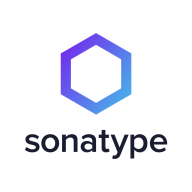

Sonatype Lifecycle and GitHub Advanced Security compete in the software security management category. Users generally favor GitHub Advanced Security for its feature-rich offerings that justify its cost.
Features: Sonatype Lifecycle offers detailed vulnerability identification and reporting, comprehensive support, and accuracy in vulnerability insights. GitHub Advanced Security integrates seamlessly with GitHub workflows, becomes an integral part of the development pipeline, and provides extensive features.
Room for Improvement: Sonatype Lifecycle could enhance integration with other development tools, broaden its management scope, and allow for better customization. GitHub Advanced Security could improve vulnerability management customization, expand its management features, and increase integration capabilities with applications outside the GitHub network.
Ease of Deployment and Customer Service: Sonatype Lifecycle is known for straightforward deployment and efficient customer service that resolves issues effectively. GitHub Advanced Security offers tight integration with GitHub but has a steeper learning curve, with customer service regarded as adequate.
Pricing and ROI: Sonatype Lifecycle offers a low setup cost and fast ROI, making it more cost-effective. GitHub Advanced Security, although more expensive with a higher upfront investment, provides significant benefits that validate the price for many users.
| Product | Market Share (%) |
|---|---|
| GitHub Advanced Security | 6.7% |
| Sonatype Lifecycle | 2.3% |
| Other | 91.0% |


| Company Size | Count |
|---|---|
| Small Business | 1 |
| Midsize Enterprise | 4 |
| Large Enterprise | 6 |
| Company Size | Count |
|---|---|
| Small Business | 12 |
| Midsize Enterprise | 8 |
| Large Enterprise | 29 |
GitHub Advanced Security secures data by scanning for vulnerabilities in dependencies, secret scanning, and protecting sensitive information. It integrates seamlessly, reducing reliance on multiple tools and optimizing vulnerability detection.
GitHub Advanced Security is designed to enhance security awareness by offering comprehensive tools for secret scanning, code analysis, and SCSS dependency checks. AI-driven features deliver accurate security insights while minimizing false positives. It provides valuable integration with Azure DevOps, maintaining control within dashboards and enabling external systems' support through APIs. With CodeQL, users can perform custom queries across projects. Propelled by Microsoft, the platform enhances operational frameworks with essential security features, although improvements are needed in dashboard consolidation, reporting, and integration mechanisms. Users seek better customizability, language support, and training resources to ensure smoother implementation.
What are the key features of GitHub Advanced Security?Industries implement GitHub Advanced Security to maintain robust security standards. It is favored by technology sectors seeking seamless integration with Azure DevOps and looking for customizable security tools tailored to project needs. Financial institutions value its accurate threat detection and compliance support, while enterprises focus on its comprehensive dependency scanning and code analysis capabilities to safeguard critical assets. The adaptability of GitHub Advanced Security across different operational environments illustrates its practical benefits.
Sonatype Lifecycle is an open-source security and dependency management software that uses only one tool to automatically find open-source vulnerabilities at every stage of the System Development Life Cycle (SDLC). Users can now minimize security vulnerabilities, permitting organizations to enhance development workflow. Sonatype Lifecycle gives the user complete control over their software supply chain, allowing them to regain wasted time fighting risks in the SDLC. In addition, this software unifies the ability to define rules, actions, and policies that work best for your organizations and teams.
Sonatype Lifecycle allows users to help their teams discover threats before an attack has the chance to take place by examining a database of known vulnerabilities. With continuous monitoring at every stage of the development life cycle, Sonatype Lifecycle enables teams to build secure software. The solution allows users to utilize a complete automated solution within their existing workflows. Once a potential threat is identified, the solution’s policies will automatically rectify it.
Benefits of Open-source Security Monitoring
As cybersecurity attacks are on the rise, organizations are at constant risk for data breaches. Managing your software supply chain gets trickier as your organization grows, leaving many vulnerabilities exposed. With easily accessible source code that can be modified and shared freely, open-source monitoring gives users complete transparency. A community of professionals can inspect open-source code to ensure fewer bugs, and any open-source dependency vulnerability will be detected and fixed rapidly. Users can use open-source security monitoring to avoid attacks through automatic detection of potential threats and rectification immediately and automatically.
Reviews from Real Users
Sonatype Lifecycle software receives high praise from users for many reasons. Among them are the abilities to identify and rectify vulnerabilities at every stage of the SDLC, help with open-source governance, and minimize risk.
Michael E., senior enterprise architect at MIB Group, says "Some of the more profound features include the REST APIs. We tend to make use of those a lot. They also have a plugin for our CI/CD.”
R.S., senior architect at a insurance company, notes “Specifically features that have been good include:
• the email notifications
• the API, which has been good to work with for reporting, because we have some downstream reporting requirements
• that it's been really user-friendly to work with.”
"Its engine itself is most valuable in terms of the way it calculates and decides whether a security vulnerability exists or not. That's the most important thing. Its security is also pretty good, and its listing about the severities is also good," says Subham S., engineering tools and platform manager at BT - British Telecom.
We monitor all Application Security Tools reviews to prevent fraudulent reviews and keep review quality high. We do not post reviews by company employees or direct competitors. We validate each review for authenticity via cross-reference with LinkedIn, and personal follow-up with the reviewer when necessary.